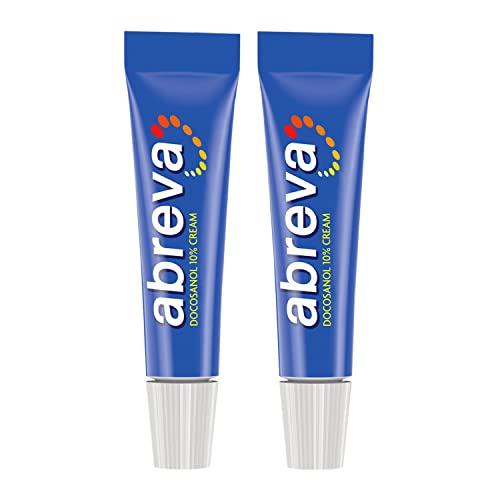Cold sores appear as a result of the herpes simplex virus type 1 (HSV-1) and are very common in children and adults. While most adults will have few problems with cold sores they can cause complications for children and babies.
If you are worried that you have kissed your baby with a cold sore we are here to take you through what to do next, including how to treat your baby if they develop a cold sore, what to do if you are worried and how you can prevent giving your baby a cold sore.
If you are worried that your bay had developed neonatal herpes you should try to control the spread, isolate your baby and get medical advice as soon as possible.
As an Amazon Associate, I earn from qualifying purchases. The links below may be affiliate links. Please read my disclosure policy for more information.
What are Cold Sores?
Cold sores, also known as oral herpes or fever blisters, appear around the outside of the mouth and can often spread inside the mouth and around the gums.
You will recognize cold sores from the blisters that are filled with fluid and form a crust when they burst. Usually, cold sores can last for a few days but they can take up to 2 weeks to clear and they should not leave a scar.
A cold sore virus spreads when you have skin-to-skin contact with someone who has the virus and the blisters can appear up to 20 days after being exposed to the skin or saliva of those infected.
For some people, cold sores do not cause a lot of problems but for others, they are extremely painful and painful.
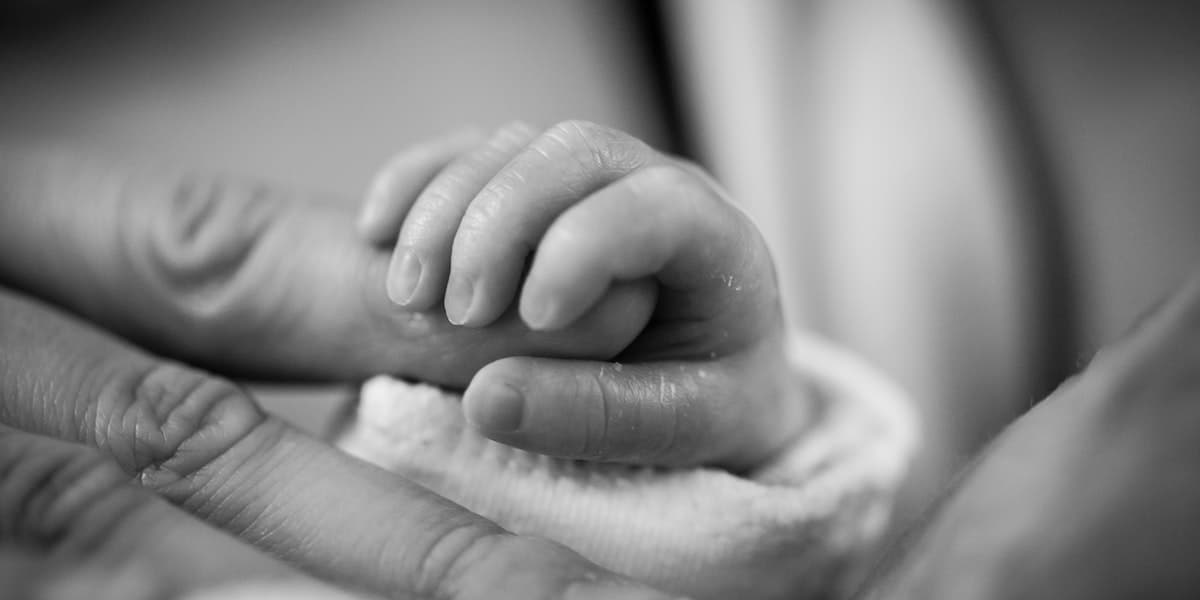
Neonatal Herpes
While adults and older children do not generally become very unwell with cold sores, the herpes virus can be more harmful to babies. Neonatal herpes is an infection in a young baby that can become very serious if it is not treated.
The main reason that cold sores can be harmful to babies is that they do not yet have a fully developed immune system that can fight the virus.
Thankfully, neonatal herpes is rare but it is something that adults need to be aware of when kissing or having close contact with people.
How Do Babies Catch Cold sores?
During pregnancy and labor, your baby may be exposed to herpes if you developed genital herpes during the last 6 weeks of pregnancy and had a vaginal delivery.
If you have had genital herpes before your infection during pregnancy then the risk of your baby catching herpes will be lower. More commonly, babies will catch a cold sore if somebody with the herpes simplex virus (cold sore) kisses a newborn baby.
Your baby will be most at risk during the first month so anyone coming in face-to-face contact with a blister on their mouth will pose a risk.
It is, therefore, important that you if believe you have a cold sore or have been exposed to herpes then you should not kiss babies that you come into contact with
Why Can Herpes Be Dangerous For Babies?
Most cases of neonatal herpes can be treated but there are times the condition can become serious as the virus can spread to a baby’s organs if it is left untreated. In very serious cases herpes can be fatal for babies.
What To Do If Your Baby is Kissed By Someone with a Cold Sore
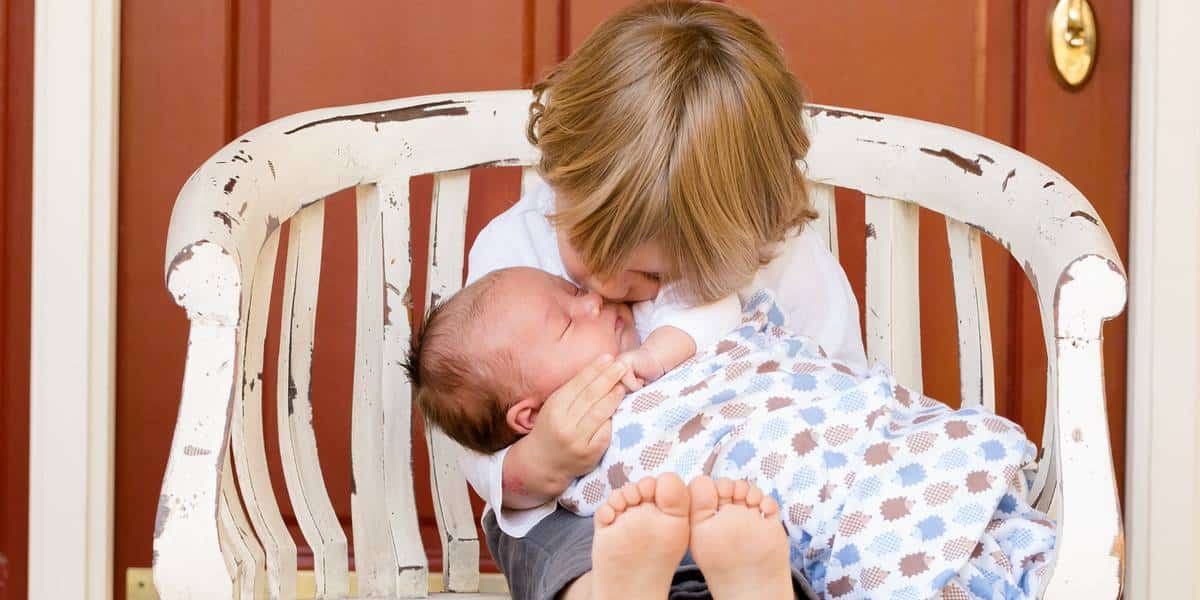
If you are a new parent or are visiting someone close to you who has had a baby you will know how irritable a newborn baby is.
If you get excited and kiss your baby when you have a cold sore or you see a family member kiss your baby then you are likely to feel panicked.
The first thing that you should so wash your baby’s mouth with warm soapy water to try and remove the virus from their mouth. You should also remove any clothing, blankets, bibs, etc that your baby was wearing when they were kissed.
Afterward, there is not a lot that you can do other than watch your baby closely to see if they develop any signs of a blister on the lips or around their mouth.
As well as keeping an eye out for a blister appearing you should look out for signs of a fever and/or loss of appetite which can indicate illness in your baby. If for any reason, you are worried about your baby then you should call your doctor.
Warning Signs
As stated above there are certain factors that you need to look out for after your baby has been exposed to the herpes virus. To recap, you should be aware of the following:
- Your baby is not feeding
- Your baby is lethargic or sleeping more than usual
- Your baby has a high temperature
- Your baby develops a rash or sores outside or inside their mouth
You should seek medical support if you notice any of the above symptoms and in addition, you should see emergency help if your baby displays any of the following symptoms:
- Your baby becomes floppy and does not respond to you
- Your baby cannot be woken from sleep
- Your baby looks like they have no energy and not moving
- Your baby’s breathing changes
- Your baby shows signs that they cannot breathe and starts to grunt
- Your baby’s skin or tongue turns blue
These are all medical emergencies and could indicate that they have complications with the herpes virus. You should not be complacent that they show no blisters and often babies can become very unwell without the obvious cold sore signs.
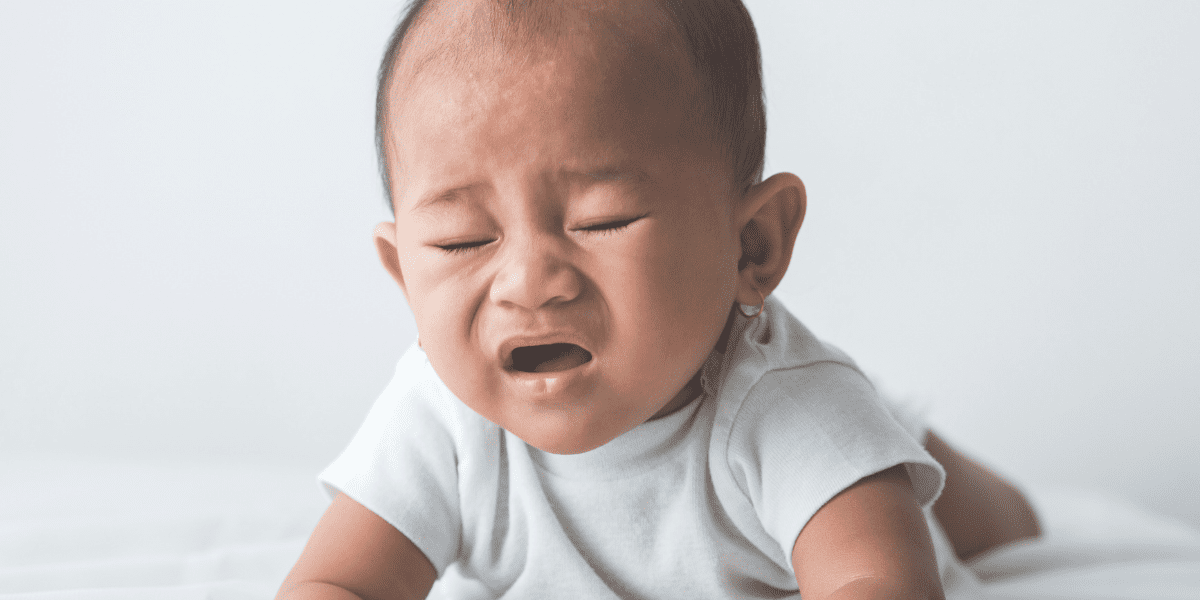
Treatment for Neonatal Herpes
If your baby is confirmed to have herpes then it will be treated with antiviral medication that is usually given intravenously ( through the baby’s veins). The treatment will last for several weeks alongside treatment for any other complications, such as fevers and dry/sore skin.
If you are taking treatment yourself and you are feeding your baby this should be ok but your doctor will give you full advice.
If your baby does not develop serious symptoms as described above then you can get them checked over by a general practitioner and they may advise some of the following treatments:
Creams and ointments
To be used at the first sign of a cold sore as this will reduce the spread and also ease any painful symptoms for your baby.
You should do the same with your cold sore. Your doctor or chemist will be able to advise on the best creams for you and your baby although Docosanol is commonly used.
Cold cloths
You can soak cloths in cold water or wrap ice in them to help alleviate the discomfort
Petroleum jelly
Commonly known as Vaseline, this jelly can be applied to the lips to ease the dryness and pain that cold sores can cause
Pain relief
If your baby is in severe distress with the pain of cold sores then your doctor may prescribe painkillers to offer some relief.
In addition to treating cold sores with medicine and ointments, you should also ensure that you do the following?
Isolate
Allow your baby to isolate from other family members so they can rest and also prevent other children from contracting herpes. You should also prevent sharing items such as bowls and utensils or any towels that your family members may share.
Stop the spread
Try to prevent your baby from scratching the area where they have a cold sore as they may spread the virus to other areas such as their eyes and head. You can put baby mittens on to help reduce the spread.
Hydration
You should ensure that your baby feeds as notional so they can stay fully hydrated. If your baby is over one year you can offer water and fruit juices to keep them topped up.
Preventing Neonatal Herpes
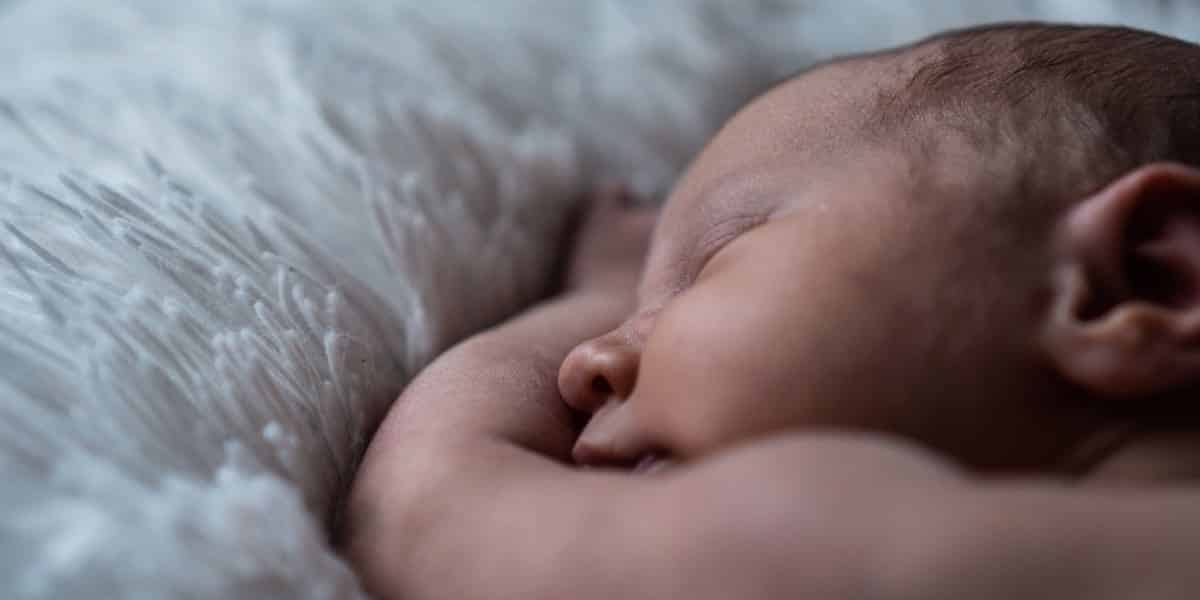
If you researching how to avoid your baby contracting herpes then there are things that you can do to avoid it.
The most important step that you need to take is to advise your doctor or midwife if you have a history of cold sores or genital herpes. If you do have a history of genital herpes then you may be advised to have a cesarean birth.
In addition to getting medical advice, once your baby is born you should take the following precautions:
- Do not kiss your baby if you have herpes
- Do not allow others to kiss your baby
- Was your hands and ask others to wash their hands before handing your baby
- Cover up any blisters or irritated skin before getting close to your baby
It will be difficult to tell others not to kiss your baby, especially if they are close family members but unless you can be certain they do not have herpes it is best to be safe.
If you can be sure they do not have herpes then it will be ok for them to kiss your baby but to be extra safe you can wait until your baby is older and their immune system has developed.

